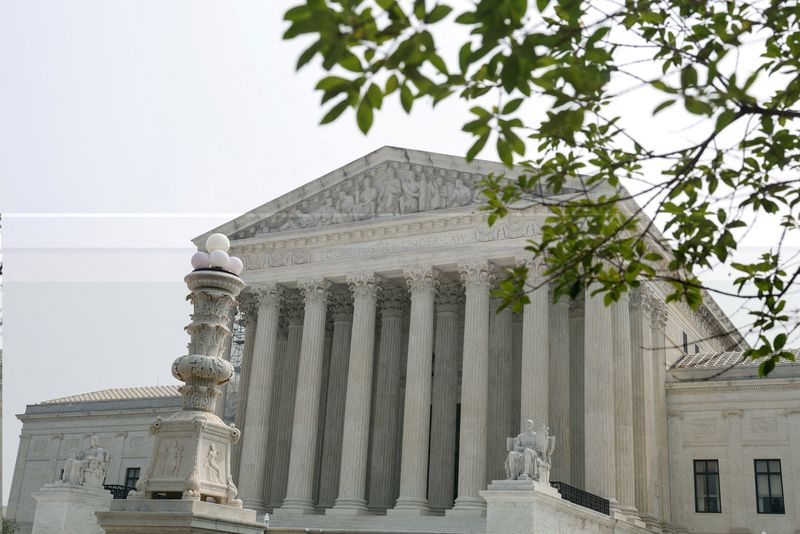By John Kruzel and Andrew Chung
WASHINGTON (Reuters) -The U.S. Supreme Court on Friday turned away a dispute involving a transgender woman whose former jailers housed her with men and delayed her hormone treatment in a case that asked whether gender dysphoria is a disability under federal law.
The justices rejected an appeal by a Fairfax County, Virginia sheriff of a lower court's ruling allowing former inmate Kesha Williams, who had been diagnosed with gender dysphoria, to proceed with a lawsuit against jail officials.
At issue was whether gender dysphoria, a condition involving distress resulting from a discrepancy between a person's gender identity and their assigned sex at birth, qualifies as a disability under a landmark 1990 federal law called the Americans with Disabilities Act (ADA).
Conservative Justices Samuel Alito and Clarence Thomas dissented from the decision to deny the appeal.
Williams sued Sheriff Stacey Kincaid and two other officials in 2020 after spending six months in the Fairfax County Adult Detention Center stemming from a drug-related offense. The suit accused jail officials of having violated Williams' rights under the ADA as well as U.S. Constitution provisions guaranteeing equal protection under the law and barring cruel and unusual punishment.
The ADA provides civil rights protections to people with physical or mental impairments in the areas of state and local government services, employment, public accommodations, transportation and telecommunications.
Some courts have wrestled with exceptions that were written into the 1990 law following a debate influenced by the late Jesse Helms, a Republican senator from North Carolina, including a provision stating that "disability" shall not include "transvestism, transsexualism, pedophilia, exhibitionism, voyeurism, gender identity disorders not resulting from physical impairments or other sexual behavior disorders."
The lawsuit said Williams had lived as a woman prior to being jailed, possessed a Maryland state driver's license identifying her as a woman and using her legally changed name, and had received hormone therapy in the form of a daily pill and biweekly injections for 15 years to treat gender dysphoria.
The jail classified Williams as male because she "maintains the male genitalia with which she was born," according to 2021 court records.
According to the lawsuit, Williams was initially denied the prescribed hormone treatment for two weeks, a delay she said caused "severe anxiety and distress."
A federal judge in Virginia dismissed the suit, ruling that Williams lacked a disability covered by the ADA and noting that Congress had "excluded from the term 'disability' all gender identity disorders" - except for those resulting from physical impairments.
The Richmond, Virginia-based 4th U.S. Circuit Court of Appeals reversed the judge's ruling, finding that gender dysphoria is protected under the ADA.
Lawyers for the sheriff told the justices that the 4th Circuit - the first federal appeals court to conclude the ADA covers dysphoria - had "flouted the plain language" of the statute.
"This decision will raise a host of important and sensitive questions," Alito said in his dissent, "regarding such matters as participation in women's and girls' sports, access to single-sex restrooms and housing, the use of traditional pronouns, and the administration of sex reassignment therapy (both the performance of surgery and the administration of hormones) by physicians and at hospitals that object to such treatment on religious or moral grounds."
In a separate transgender rights case in April, the Supreme Court refused to let West Virginia enforce a state law banning transgender athletes from female sports teams at public schools, one of many Republican-backed measures across the country targeting LGBT rights.

The justices in 2021 left in place a lower court's ruling in favor of a transgender former public high school student who waged a six-year legal battle against a Virginia county school board that had barred him from using the bathroom corresponding with his gender identity.
Republicans in various states have pursued a wave of laws directed at LGBT people - limiting transgender participation in sports, access to gender-affirming medical care, and the teaching of subjects related to gender identity or sexual orientation.